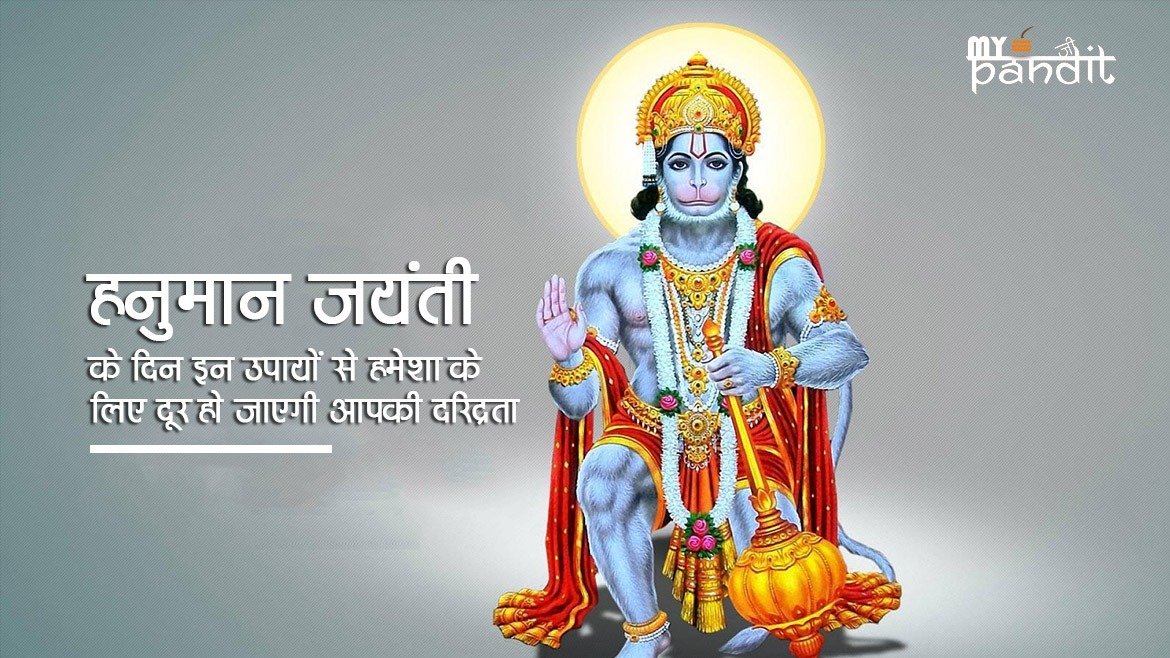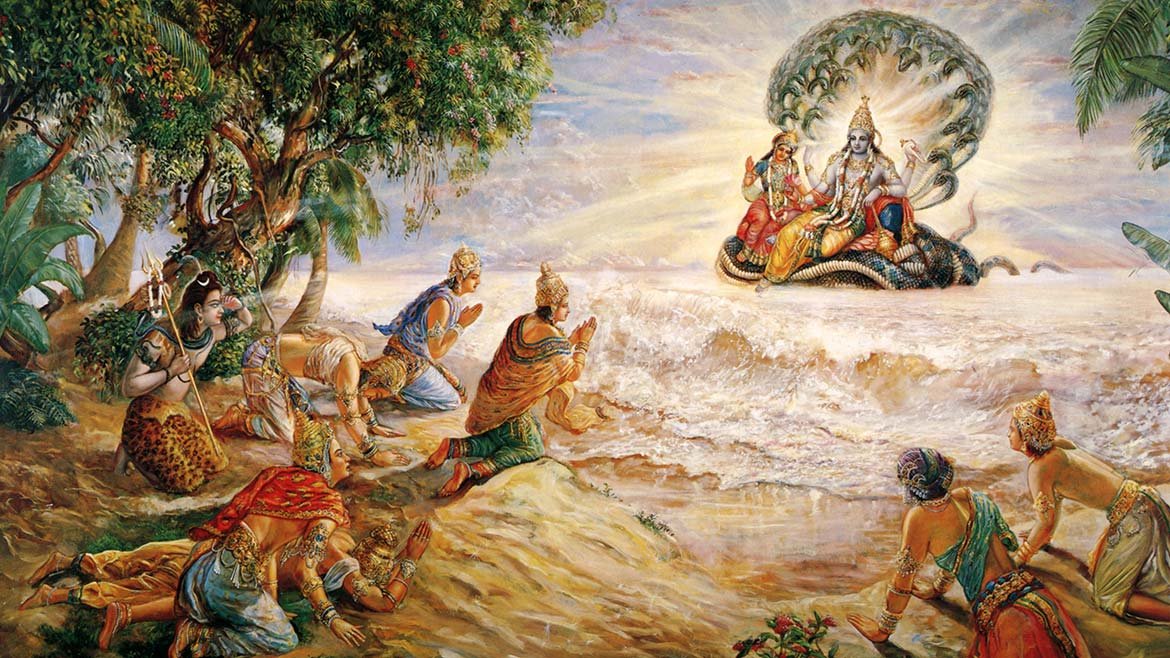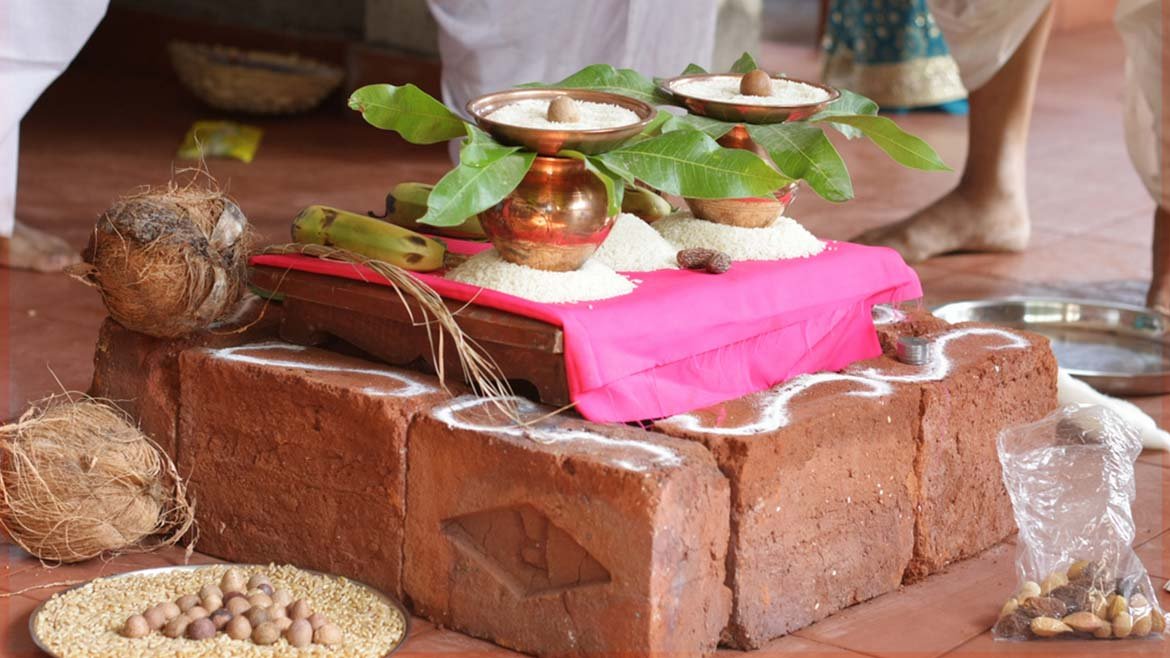आज हम आपको हनुमान जयंती पे हनुमान जी की पूजा कैसे करनी चाहिए इसके बारे मे बताएँगे|हमारे शास्त्र के अनुसार हनुमान जयंती प्रत्येक वर्ष चैत्र वर्ष की पूर्णिमा को मनाया जाता है| इसलिए इस वर्ष हनुमान जी की जयंती 22 अप्रैल को मनाया जाने वाला हैं| Continue reading
Post Formats
हनुमान जयंती 22 अप्रैल को हैं| इस दिन पूरे भारतवर्ष मे सारे हनुमान मंदिरों मे बहुत भीड़ रहती हैं| ऐसा कहा जाता हैं की हनुमान जी को प्रभु श्री राम जी ने वरदान दिया था की वो अमर रहेंगे और ये आदेश भी दिया था की पृथ्वी पे जब तक कलयुग रहेगा तब तक वो धरती पे रहकर पूरे मानव जाती की रक्षा करेंगे| Continue reading →
भारतीय केलेंडर एवं हिंदू पांचांग के अनुसार आने वाली २२ अप्रैल को है राम भक्त हनुमान जयंती हनुमान जयंती हिन्दुओ दुवारा बड़ी धूम धाम से मनाई जाती है, राम भक्त महाशक्ति सुरूप हनुमान जी को पूजते हुए पथ संचालन होता है जिसमे समस्त हिंदू समाज धार्मिक सधभावना एवं बड़ी धूम धाम से शामिल होता है | Continue reading →
Makar sankranti festival is celebrated every year on 14 January. Makar Sankranti is one of the most propitious occasions celebrated in almost all parts of the country bringing favourable circumstances and good luck. Several names and a variety of traditions are witnessed on this festival in different states. The Sun transition from zodiac sign Sagittarius to Capricorn during the winter solstice is known as Makar Sankranti. The journey of Sun traveling northwards(from Dakshinayana to Uttarayana)is sacred and auspicious. Taking dip in holy river, praying the diety, fasting and giving daan or charity are considered extremely holy deeds on sankranti.
Shrimad Bhagwatam is the most sacred books of the Hindus. It gives a tremendous insight, a profound vision, and an entirely new perspective to the person who hears the narrative. On hearing, a person is never the same. There is a complete metamorphosis, a complete transformation, literally a new birth. Atman (soul) by it’s own nature is sovereign – it cannot by nature be bound – whatever bondages felt are sheer illusions of the mind. Shrimad Bhagwatam provides that light which enables Jeeva (human being) to experience the wonderful freedom of liberation.
Vastu means the dwelling of humans and Gods. Vastu shastra is an ancient science which helps one get the benefits freely offered by the basic elements of the universe.
These basic elements are Akash (SKY), Prithvi (EARTH), Paani (WATER), Agni (FIRE), and Vayu (WIND).
Vaastu Shanti worship is originally a worship of lord and deity of directions, five elements of nature as well as natural forces and other related stuffs.
We perform Vaastu Shanti (worship of deity and lord of nature and their elements and natural forces as well as lord and deity of directions and environment) to remove any type of Vaastu dosha whether it’s a land and building, nature or environment, by Vaastu shastra worship to avoid major changes and demolition in the structure of building.
The English equivalents of ‘Puja’ are homage, reverence, worship, respect, etc. The system of Puja relates to religions, deities and God. In some religions there is an elaborate system of rituals for Puja while in some religions there is a simple method of prayer.
All the major religions of the world originated in Asia. South Asia is the birth place of four major religions- Hinduism, Buddhism, Jainism and Sikhism. All these religions originated in India. Christianity and Islam originated in South- west Asia for which Jerusalem, Mecca and Madina are important places. In all these religions, the concept of God exists. Only Sikhism concentrates on Gurus. But, the system of Puja and prayers is associated with all the religions.
This system is visible in today’s world. Almost all the religions except Hinduism evolved during the last 2,600 years. Hinduism is the oldest religion of the world and its history is about 4,000 years long but Hinduism also developed after the 1st agricultural revolution which took place about 10,000 years ago and the intervening period was Vedic period in India during which such Puja systems had not taken roots.
In order to understand the purpose of Puja we will have to go back in the early stages of human civilizations when man was a jungle dweller and without shelter, because, the system of reverence to some unknown power started emerging in that period. This will define the causes also which drive human beings to perform Puja.








